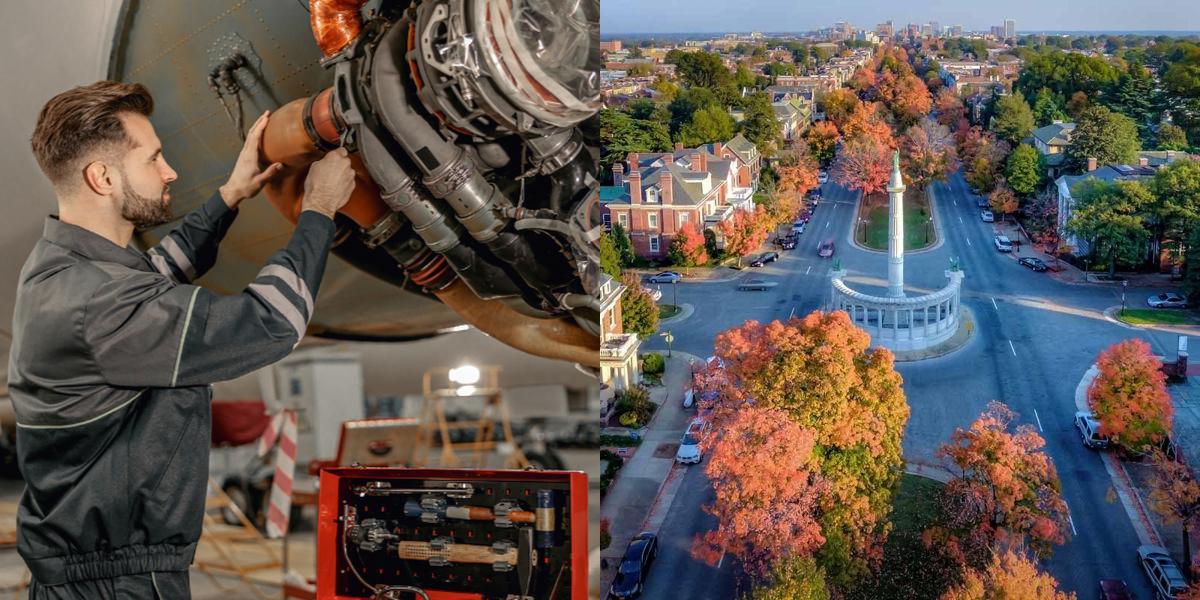How to Become an Aviation Mechanic in Virginia

Aviation mechanics play a crucial role in ensuring the safety and functionality of aircraft. They are responsible for inspecting, repairing, and maintaining various components of an aircraft, including engines, landing gear, and electrical systems. Their expertise is vital in keeping planes in optimal working condition and preventing potential mechanical failures.
Job Boards and Websites
There are several job boards and websites that specialize in aviation mechanic jobs. These sites allow you to search for jobs by location, experience level, and other criteria. Some popular job boards for aviation mechanics include Avjobs, JSfirm, and Aeroindustryjobs.
Resume and Cover Letter
Having a well-written resume and cover letter is essential when applying for aviation mechanic jobs. Your resume should highlight your education, training, and experience, as well as any relevant certifications or licenses. Your cover letter should be tailored to each specific job and should highlight why you are a good fit for the position.
Job Fairs and Trade Shows
Attending job fairs and trade shows can be a great way to meet potential employers and learn more about job opportunities in the aviation industry. These events often feature employers looking to hire aviation mechanics and provide an opportunity for you to make a personal connection with hiring managers.
Career Paths and Opportunities after Becoming an Aviation Mechanic
Once you have become a certified aviation mechanic, there are several career paths and opportunities available to you.
General Aviation
Many aviation mechanics choose to work in general aviation, which includes smaller, privately-owned aircraft. General aviation mechanics may work for small airports, private aviation companies, or individual aircraft owners. This can be a rewarding career path for individuals who enjoy working on a variety of different aircraft and value the close-knit community of general aviation.
Commercial Aviation
Commercial aviation mechanics work for airlines and other large aviation companies. They are responsible for maintaining and repairing the aircraft in the company's fleet. This can be a fast-paced and demanding career path, but it also offers the opportunity to work on larger, more advanced aircraft.
Government and Military
Aviation mechanics can also find employment with the government or military. The military in particular offers a wide range of opportunities for aviation mechanics, including working on military aircraft and helicopters. Government positions may involve working for agencies such as the FAA or the National Transportation Safety Board (NTSB).
Aerospace Manufacturing
Another career path for aviation mechanics is aerospace manufacturing. Aerospace manufacturers are responsible for building and assembling aircraft and aerospace components. Working in aerospace manufacturing can be a great option for individuals who enjoy working with their hands and have a strong attention to detail.
Final Thoughts
Becoming an aviation mechanic is a rewarding career choice for individuals who are passionate about aviation and enjoy working with their hands. By following the proper education, training, and certification process, you can become a certified aviation mechanic and start your career in the field. With a variety of career paths and opportunities available, the aviation industry offers a promising future for aspiring mechanics.
So, if you are interested in pursuing a career as an aviation mechanic, start by researching educational programs and training options in your area. Consider joining professional organizations and attending job fairs to network with others in the industry. And don't forget to polish your resume and cover letter to make a strong impression on potential employers. With the right education, training, and determination, you can achieve your goal of becoming a certified aviation mechanic and embark on an exciting and fulfilling career in the aviation industry.
Looking for a better fit? These other articles could be more in line with your expectations if this one isn't precisely what you had in mind:

Joanna Paragas is part of the Growth team at Dreambound. Her primary role involves creating various automation to streamline workflows and make tasks more efficient for the entire team. Beyond her professional endeavors, Joanna enjoys spending her free time playing with her dogs and enhancing her knowledge by enrolling in online courses.



